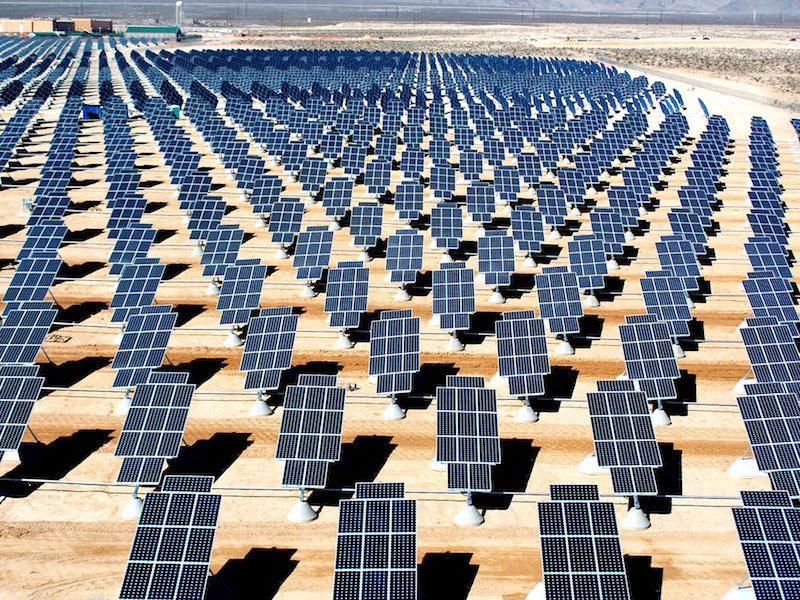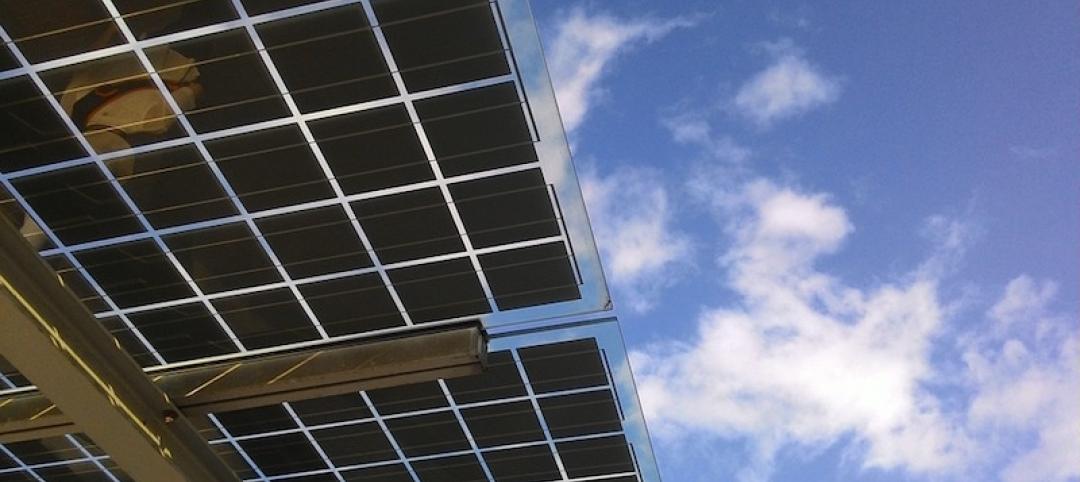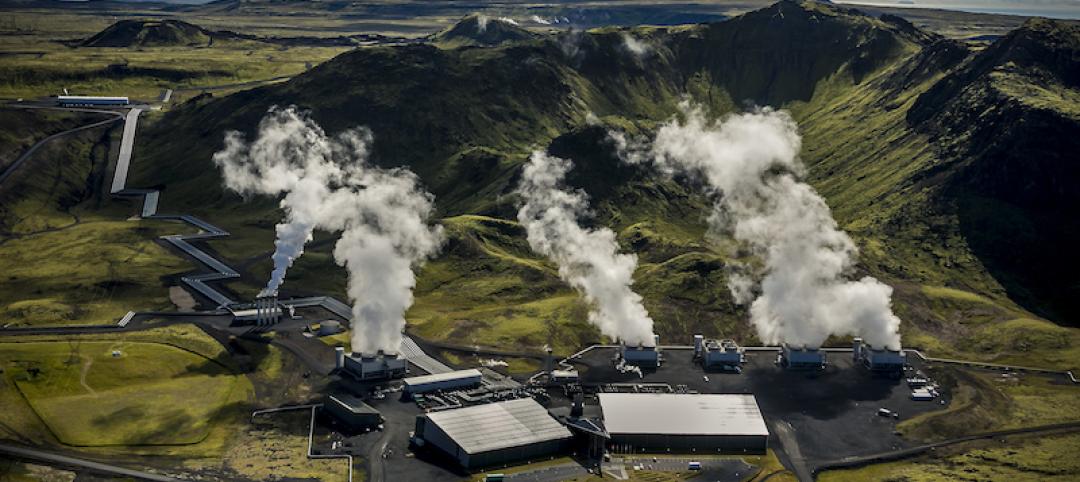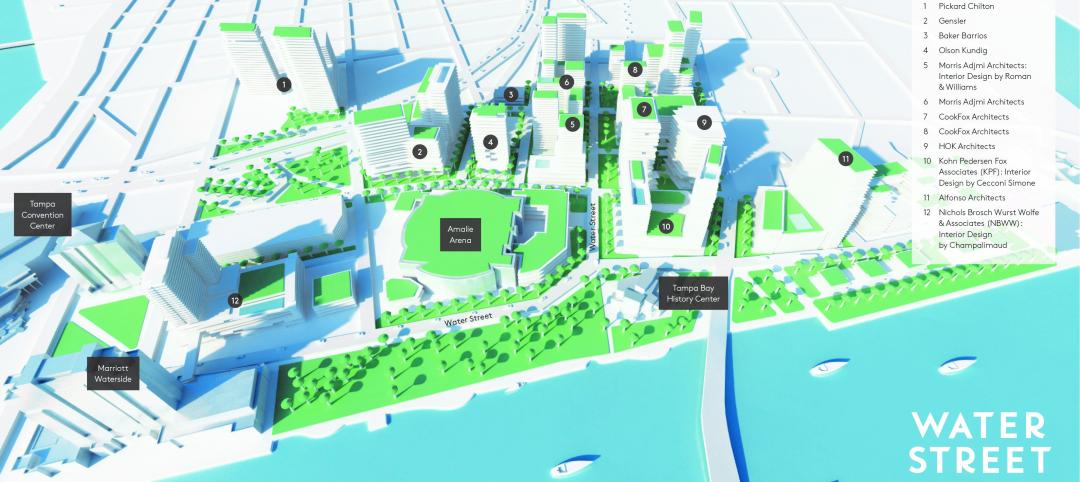Carbon dioxide has become far too prevalent in our atmosphere and is a large component of greenhouse gases that many believe are responsible for climate change. But what if this excess carbon dioxide could be harvested from the atmosphere, repurposed, and used to make a clean, renewable energy source that already exists more efficient?
It sounds like a plan Doc Brown would have concocted and then hurriedly told Marty McFly about as a group of angry terrorists bared down on them, but this isn’t the stuff of science fiction like a flux capacitor, this is very much based in reality.
GE believes it has found a way to harvest CO2 and use it to create solar batteries, Digitaltrends.com reports. Solar energy is a great source of renewable energy, but there is a problem: the sun needs to be shining in order to harness its power. Currently, there isn’t a very efficient means of storing energy produced from solar power to keep it available to the grid whenever it is needed, even if the sun isn’t currently shining, but that could all change.
Here is how the two-stage process works: solar energy would be captured and stored in a liquid of molten salt. Harvested and stored CO2 would then be cooled into dry ice and, when power is needed, the salt would turn the dry ice CO2 into a “supercritical” fluid (which is defined as matter that does not have specific liquid or gas phases). This supercritical fluid would then flow into a CO2 turbine called a sunrotor and the energy would be disseminated as needed.
If it seems complicated, well, that’s probably because it is. But don’t worry, just because something being complicated often times means it is inefficient and/or expensive, that isn’t the case here.
Not only would the process be cheap since energy isn’t being made, just transferred, the sunrotors would also be able to operate with 68% efficiency. Gas power plants are typically only able to achieve 61% efficiency.
However, this process and the sunrotors are still a good five to 10 years away from actually being put into use, but the fact that the technology exists to not only suck some CO2 out of the atmosphere but to also use it to make renewable, clean energy sources more efficient and practical makes this a classic two birds with one stone scenario.
The overall effect of these sunrotors and this CO2 harvesting/storing process is reduced usage of fossil fuels for power generation, which would only work to eliminate even more CO2 from the atmosphere.
Related Stories
Giants 400 | Oct 30, 2017
Top 45 green engineering firms
WSP, AECOM, and Arup top BD+C’s ranking of the nation’s largest green sector engineering and EA firms, as reported in the 2017 Giants 300 Report.
Giants 400 | Oct 30, 2017
Top 130 green architecture firms
Gensler, Stantec, and HOK top BD+C’s ranking of the nation’s largest green sector architecture and AE firms, as reported in the 2017 Giants 300 Report.
Greenbuild Report | Oct 18, 2017
Rebuild, retreat, or resist
Hurricanes Harvey and Irma expose the necessity—and limitations—of resilient design and construction measures.
Sustainability | Oct 16, 2017
A negative emissions power plant is now operational in Iceland
The geothermal power plant in Hellisheidi, Iceland was outfitted with a Climeworks DAC module.
Sustainability | Oct 9, 2017
New Arizona State University building will reach triple net-zero performance
The science and research complex will include an atrium biome filled with plants and water.
Sustainability | Oct 4, 2017
The solutions to climate change are already at our fingertips
To keep global temperature rise below 2 degrees Celsius of warming, the International Energy Agency (IEA) reports that the global buildings sector will need to decrease its total annual greenhouse gas contribution by 77% by 2050.
Green | Oct 2, 2017
Five strategies to improve energy performance in existing buildings
After performing retro-commissioning and energy audits for more than five million square feet of existing building real estate, we have developed a list of common low/no-cost Energy Conservation Measures (ECMs) that are identified on the majority of projects.
Green | Sep 27, 2017
Wellness gains ground with real estate and property management professionals
Structure Tone survey finds LEED is still a selling point, but interest in resilience practices could be waning.
Codes and Standards | Sep 12, 2017
Washington, D.C. is first LEED Platinum city in the world
All city government buildings are powered by renewables.
Green | Sep 12, 2017
Brooklyn’s Windsor Terrace Library gets a living roof
The roof was funded through a process that allows local residents to decide how City capital dollars are spent in their neighborhoods.

















